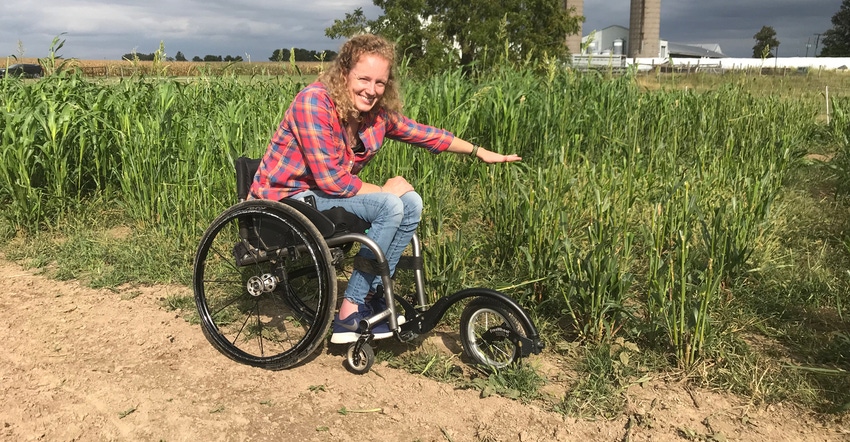
Two Indiana livestock producers who rely heavily on forages in their operation will share their experiences at an Indiana Forage Council seminar on Feb. 27. The program will be held at the William H. Daniel Turfgrass Research and Diagnostic Center on Cherry Lane in West Lafayette, Ind. It’s the former site of Purdue University’s dairy farm, which was moved to the Baker-Purdue Animal Science Farms years ago.
Rodney Hufford, Clinton County, and Dean Gangwer, Carroll County, will share their unique experiences. The seminar will follow the Indiana Forage Council annual meeting at 4:30 p.m. EST and a meal at 6 p.m. Keith Johnson, Purdue Extension forage specialist, says you don’t have to attend the IFC annual meeting to attend the meal or seminar.
Hufford is part of Middlefork Meadows Farm. He manages a grazing operation with his brothers, dad and grandfather. Their intense grazing operation incorporates both annual and perennial forages. Hufford says this allows them to graze much longer into the winter and feed less hay.
Meanwhile, Gangwer, of Gangwer Farms, runs a diverse operation that includes grain, hay, an Angus cow herd, and finishing calves for freezer beef. The farm uses a monoslope-style barn to finish out cattle.
Also during the program, Shelby Gruss, a Purdue graduate student who is a nationally recognized emerging scientist by the American Forage and Grassland Council, will explain her work to date on a brown midrib sorghum-sudangrass that does not produce prussic acid. Grazing traditional varieties of sorghum-sudangrass into late fall raises issues because once plants freeze, they can produce prussic acid, which is toxic to animals. Her experiment involves evaluating feeding preferences of sheep with various varieties of sorghum-sudangrass and a sudangrass hybrid.
Cost for the program is $20 per person. Reserve a spot by emailing [email protected] or calling 765-494-4800.
About the Author(s)
You May Also Like




